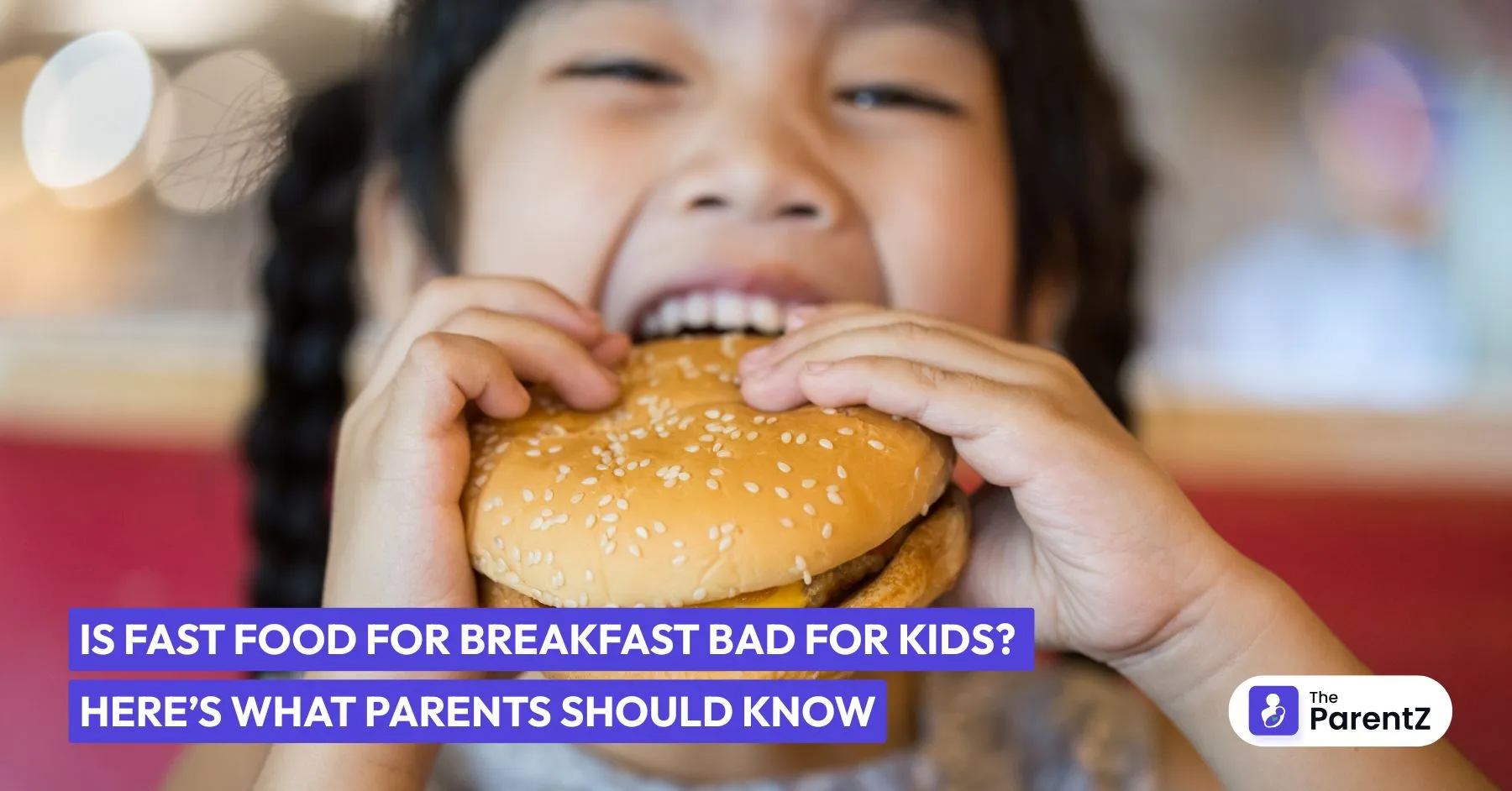A Morning Shortcut Worth Rethinking?
In the rush of chaotic school mornings, fast food breakfast can feel like a lifesaver: quick, affordable, and easy to grab on the go. But as a parent, it’s important to ask: What is this convenience costing our kids in the long run?
From sugary breakfast sandwiches to syrup-drenched pancakes and hash browns, many fast food breakfasts deliver more calories, sodium, and saturated fat than a child needs in an entire morning or sometimes, an entire day.
Let’s break down the truth behind fast food breakfasts and how they really affect your child’s health, energy, and performance.
1. What’s Really in That Breakfast Sandwich?
Fast food breakfasts often lack essential nutrients and are overloaded with:
- Refined carbs (like white bread, waffles, and pancakes)
- High sodium (processed meats, cheese, sauces)
- Added sugars (flavored syrups, pastries, sweetened drinks)
- Unhealthy fats (fried items, processed oils)
According to data from the Journal of the Academy of Nutrition and Dietetics, many fast food breakfasts exceed 50% of the recommended daily sodium intake for kids—in just one meal.
Pair that with a sugary juice or sweetened coffee-like drink, and you’re left with a blood sugar spike followed by a crash.
2. Impact on Focus and School Performance
You might think a hearty fast food breakfast fuels your child for the day—but the type of fuel matters.
Meals high in sugar and refined carbs lead to:
- A quick burst of energy, followed by fatigue
- Poor concentration and shorter attention spans
- Mood swings or irritability mid-morning
In contrast, a breakfast with protein, fiber, and healthy fats helps keep energy levels and blood sugar stable—key for school success.
3. Long-Term Health Concerns
Occasional fast food isn’t the enemy—but making it a daily habit could contribute to serious health risks, including:
- Childhood obesity
- Type 2 diabetes
- High cholesterol and blood pressure
- Increased risk of metabolic syndrome
A 2020 study in Pediatrics found that children who regularly consumed fast food had higher BMIs and poorer diet quality over time compared to those who ate home-prepared meals.
4. What About “Healthier” Fast Food Options?
Some chains now offer oatmeal, yogurt parfaits, or fruit cups—but beware of hidden sugars or processed toppings.
Even “light” wraps or smoothies can pack more calories and sugar than a child’s body needs.
That said, if you have to opt for fast food, look for:
- Plain oatmeal (unsweetened if possible)
- Fruit cups (without syrup)
- Egg-based items without sausage or bacon
- Whole-grain options if available
- Water or milk instead of juice or soda
5. Smart Breakfast Swaps for Busy Mornings
Even if you’re short on time, healthier breakfasts don’t have to be hard:
- Hard-boiled eggs + fruit
- Greek yogurt + berries + granola
- Whole-wheat toast + peanut butter
- Homemade breakfast burrito (egg + cheese + veggies)
- Overnight oats prepared the night before
Batch prepping a few items on Sundays can make mornings smoother without the drive-thru.
Conclusion: Make Fast Food the Exception, Not the Routine
There’s no shame in turning to fast food when life gets hectic. But when it becomes the norm, it may set patterns that hurt your child’s physical and mental health.
By being mindful of what’s on their morning plate and offering simple, nourishing alternatives, you give your child the best start—not just to their day, but to their long-term health.
After all, breakfast isn’t just the first meal, it’s the foundation of focus, energy, and well-being.





Be the first one to comment on this story.